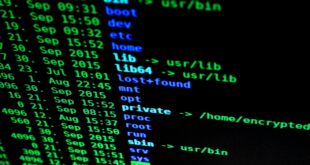Smart contracts are becoming increasingly significant in international arbitration, fundamentally altering the landscape of dispute resolution. These self-executing contracts, with the terms of the agreement directly written into code, are stored and executed on a blockchain. Their integration into commercial transactions promises efficiency, transparency, and automation, which is particularly advantageous in the globalized economy.
The core appeal of smart contracts lies in their ability to automatically enforce and execute the terms of an agreement when predefined conditions are met. This reduces the need for intermediaries and minimizes the risk of human error or manipulation. For international arbitration, this means that many procedural steps can be automated, potentially reducing the time and costs associated with dispute resolution.
However, the rise of smart contracts also introduces new challenges for international arbitration. One of the primary concerns is the enforceability of smart contracts under existing legal frameworks. Traditional legal systems are still grappling with how to interpret and enforce agreements coded into software. This ambiguity can create uncertainties about whether a smart contract will be recognized as legally binding in different jurisdictions.
Another significant implication is the potential for technical errors or vulnerabilities within the smart contract code. Since these contracts operate based on strict adherence to coded instructions, any bugs or flaws can lead to unintended outcomes. In the context of international arbitration, this raises questions about liability and rectification when a smart contract does not perform as intended.
Integrating smart contracts into international arbitration also necessitates a new level of technical expertise among arbitrators. To effectively resolve disputes, arbitrators must understand both the legal and technical nuances of smart contracts. This rare dual expertise highlights the need for specialized training and education within the field.
Moreover, the immutable nature of blockchain, which underpins smart contracts, presents another layer of complexity. Once a smart contract is executed, it cannot be altered or reversed. This permanence can be a double-edged sword: while it enhances security and trust, it also means that mistakes or changes in circumstances cannot be easily remedied. Arbitrators will need to develop strategies for addressing disputes arising from the rigid execution of smart contracts.
Jurisdictional issues are also amplified in the context of smart contracts. Since these contracts operate across decentralized blockchain networks, pinpointing a specific jurisdiction for legal purposes can be challenging. This complicates the enforcement of arbitral awards and the determination of applicable law, which are already complex issues in international arbitration.
Despite these challenges, smart contracts offer significant benefits for international arbitration. Their automated nature can streamline the resolution process, reducing the need for lengthy hearings and documentation. This efficiency is particularly valuable in high-volume, low-value disputes where traditional arbitration might be cost-prohibitive.
Furthermore, smart contracts can enhance transparency in international arbitration. Since all actions and transactions are recorded on a blockchain, there is a clear, immutable trail of evidence. This transparency can build trust between parties and reduce disputes over a case’s facts.
Regarding confidentiality, a cornerstone of international arbitration, smart contracts, and blockchain technology offer both opportunities and challenges. While blockchain’s transparency ensures that all contract executions are visible, this visibility must be managed to protect sensitive information. Developing mechanisms to balance transparency with confidentiality will be crucial.
The use of smart contracts also has implications for the accessibility of international arbitration. By lowering costs and simplifying processes, smart contracts could democratize access to dispute resolution services, particularly for small and medium-sized enterprises that might otherwise find international arbitration too expensive.
Looking ahead, the legal community must adapt to the growing presence of smart contracts. This will likely involve the development of new legal frameworks and standards that specifically address the unique characteristics of smart contracts and blockchain technology. International arbitration institutions are already beginning to explore these issues, but more comprehensive guidelines and regulations are necessary.
In conclusion, smart contracts represent both an opportunity and a challenge for international arbitration. Their potential to streamline and automate dispute resolution processes is significant, but this must be balanced against the need for clear legal standards and technical safeguards. As the use of smart contracts continues to grow, the international arbitration community will need to evolve to address these new realities.
Ultimately, the successful integration of smart contracts into international arbitration will depend on collaboration between legal professionals, technologists, and policymakers. By working together, they can ensure that the benefits of smart contracts are fully realized while mitigating the associated risks. This will pave the way for a more efficient, transparent, and accessible international dispute resolution system in the digital age.
 Radar Facts Connecting You with a World of Insights and Opportunities.
Radar Facts Connecting You with a World of Insights and Opportunities.


